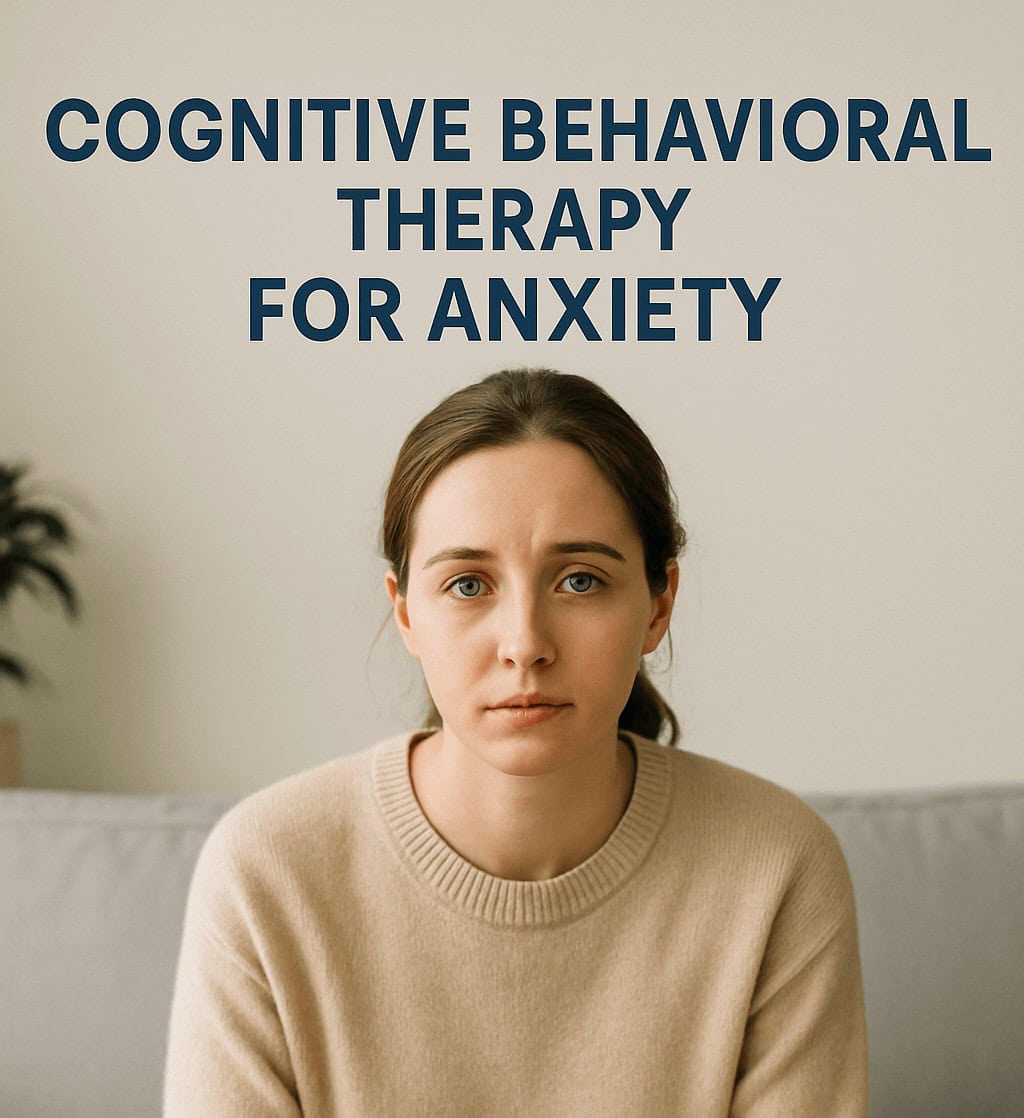
Anxiety is one of the most common mental health conditions. It affects how you think, feel, and respond to stress. Fortunately, cognitive behavioral therapy for anxiety is a highly effective, evidence-based approach. People across the U.S., including those in Raleigh, are discovering how CBT helps them manage anxiety with lasting results.
Understanding Cognitive Behavioral Therapy (CBT)
Cognitive behavioral therapy focuses on the link between thoughts, feelings, and behaviors. It teaches people how to recognize and reframe negative thought patterns that fuel anxiety.
CBT doesn't just reduce symptoms. It gives you tools to change how you respond to stress long term. These strategies can be applied in daily life, building resilience and emotional balance.
Therapists trained in CBT work with clients to uncover unhelpful beliefs. Through practice, those beliefs are replaced with more accurate, constructive thoughts.
Why CBT Works for Anxiety
CBT is widely studied and recommended for anxiety disorders. It’s used to treat:
- Generalized anxiety disorder (GAD)
- Social anxiety
- Panic disorder
- Phobias
- Health anxiety
- Performance anxiety
What makes CBT effective is its structure. It’s goal-oriented and collaborative. You’ll work on specific strategies between sessions and track your progress over time.
CBT empowers people to manage anxiety on their own. This sense of control is essential for recovery and long-term growth.
Key Techniques Used in CBT for Anxiety
1. Cognitive Restructuring
This technique involves identifying distorted thoughts and replacing them with realistic ones. For example:
- Distorted Thought: "If I speak up at work, I’ll embarrass myself."
- Realistic Thought: "Everyone makes mistakes. I’ve handled challenges before and can do it again."
Over time, this shift in thinking reduces fear and improves confidence.
2. Exposure Therapy
Avoiding anxiety triggers keeps anxiety strong. In CBT, exposure exercises help you face fears gradually. This reduces their power and teaches your brain that the fear isn’t dangerous.
For example, someone with social anxiety may start by practicing small interactions and building up to group settings.
3. Behavioral Activation
Anxiety often leads to withdrawal or inactivity. Behavioral activation helps clients re-engage in meaningful activities even when they feel anxious. This helps restore energy and motivation.
Therapists might guide clients to plan enjoyable or purposeful tasks each day. This reduces anxiety over time and strengthens mood regulation.
Benefits of Cognitive Behavioral Therapy
Many people experience improvements after just a few sessions of CBT. Long-term benefits include:
- Reduced anxiety symptoms
- More flexible thinking
- Increased confidence in stressful situations
- Better sleep and focus
- Healthier habits and routines
CBT teaches skills that stay with you. It's not about avoiding stress, but learning how to manage it.
What to Expect From CBT Sessions
CBT sessions focus on setting goals, identifying thought patterns, and practicing coping strategies. Each session builds on the last.
Therapists may offer worksheets or assign practice exercises between sessions. These help you reinforce what you learn. You’re encouraged to take an active role in your treatment.
Progress depends on consistency. Like any habit, rewiring thought patterns takes time—but it works.
How Long Does CBT Take?
Most CBT programs last between 8 and 20 sessions. However, some people benefit from longer or shorter durations based on their needs.
The goal is not indefinite therapy. CBT is designed to be time-limited and skills-based. You learn techniques that become part of your daily life.
CBT vs. Medication
CBT and medication can both treat anxiety. However, CBT often provides longer-lasting effects. Many people use CBT alone, while others use it alongside medication.
Talk with a licensed professional to explore what’s right for your situation. Greene Psychology Group can help guide you through that decision.
Frequently Asked Questions (FAQs)
Q1: Does CBT work for panic attacks?
Yes. CBT teaches tools to reduce the fear cycle associated with panic attacks. Many people experience fewer and less intense episodes with consistent therapy.
Q2: Is CBT only for severe anxiety?
No. CBT is helpful for all levels of anxiety, from mild to severe. Early intervention leads to better outcomes.
Q3: Will CBT cure my anxiety?
While CBT may not eliminate all anxiety, it dramatically reduces symptoms and teaches lasting coping strategies.
Q4: Can I do CBT on my own?
Self-guided CBT workbooks can be helpful, but working with a licensed therapist ensures personalized guidance and support.
Q5: How do I know if CBT is right for me?
If you’re ready to actively work on managing anxiety, CBT is an excellent option. A licensed therapist can assess your needs.
